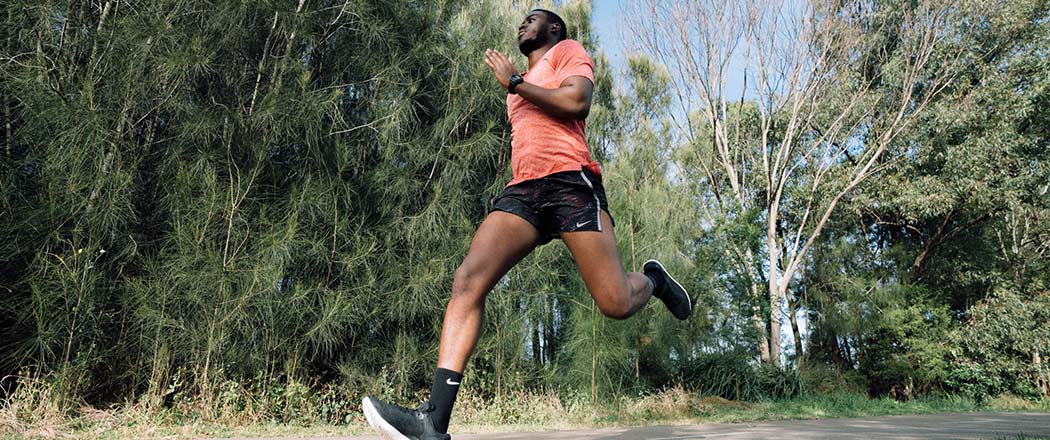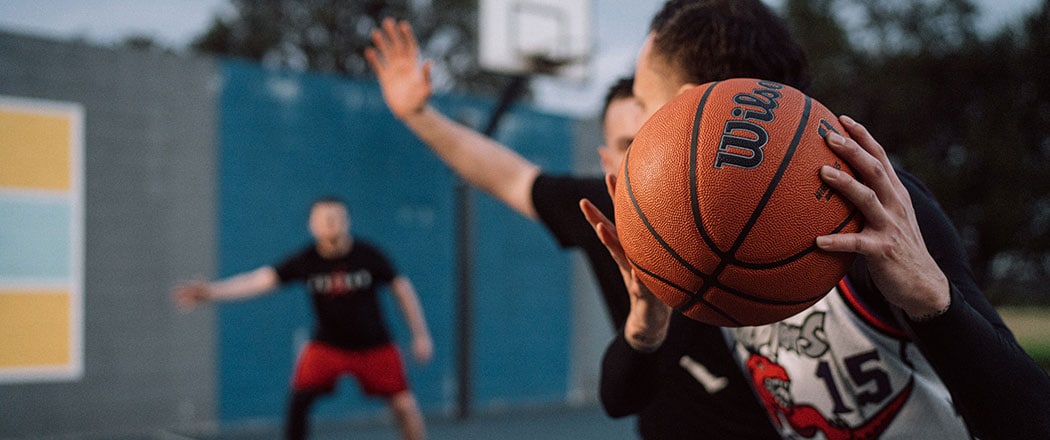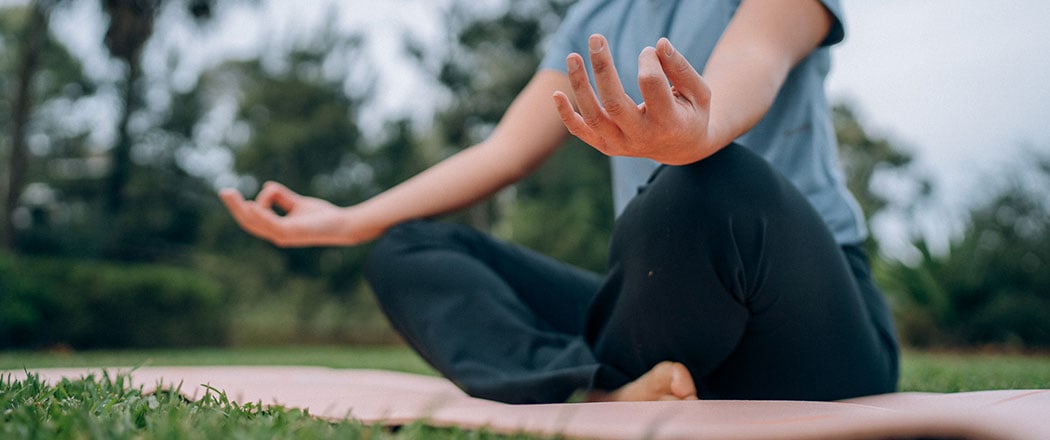It's no surprise that playing a sport can improve your physical health, but did you know that sport can improve your mental health too? From the moment you pull on your training gear , to when you first step out onto the field – exercise is an outlet for many people to clear their minds while working their bodies.
“There’s a lot of evidence to suggest that participating in sports or engaging in physical activity can have positive impacts on our mental health and wellbeing,” said Irene Gallagher Head of Crisis Support, Knowledge and Quality at Lifeline, a non-profit organisation that provides telephone, text and chat assistance for people needing emotional and mental health support.
With a professional background in mental health and counselling, Irene knows about the transformative power that physical activity such as exercise and sports can have on an Individual’s mental health.
“Excessive stress and worry is a real problem,” Rachel explained. “Sometimes people feel like anxiety and depression almost come out of nowhere. But in reality, it can be a number of things that slowly build up over time. The straw that broke the camel’s back is quite often what happens.”
Around 1 in 6 Australians currently experience depression and/or anxiety, and often people don’t realise they’re mentally exhausted. And recent figures from AIHW illustrate that 44% of us have experienced a mental disorder at some time in our lives.
As a result, it should come as no surprise that suicide statistics in Australia are so staggering. The Australia Bureau of Statistics reports that 8.6 Australians die every day by suicide. That’s more than double the road toll. This makes it the leading cause of death for Australians between the ages of 15 and 44. Help is desperately needed. And so is sport.
Here is how the power of sport can transform your mental health.
The feel-good factor

When you exercise, your brain releases chemicals called endorphins that act as natural painkillers. Endorphins can help to relieve stress and anxiety by boosting your mood and improving your sleep
“Any kind of exercise can produce endorphins.” Irene says. Whether you’re walking to soccer practice, stretching it out pre-game or running towards a goal, endorphins can appear as soon as your heart rate picks up.”
To make the most of these ‘feel-good chemicals’, pick a sport or activity that keeps you coming back for more. “I find the easiest way to incorporate exercise into my life is to do an activity I naturally enjoy.” Irene says. ‘For me this could be as simple as walking my dogs or engaging in more strenuous activity such as swimming.”
For an extra mood boost, pick an outdoor sport or exercise to participate in. Simply being outside in natural light has a calming effect on your mental health and gives you a dose of vitamin D to strengthen your immune system.
A healthier you

It’s important to look after your physical health, and sport and exercise are the best ways to do this. “Whilst exercise and physical activity are key to good mental health, it’s also important to consider other factors of wellbeing such as a healthy diet and getting enough sleep,” Irene says.
Sport and exercise are great ways to keep your physical health in check. Not only can they improve your endurance and muscular healthy, but they can reduce your risk of heart disease and diabetes.
Playing a sport also encourages you to make healthy decisions with your diet and lifestyle. Alter all, if you need to be on top form for an upcoming match, it’s unlikely you’ll be smashing down burgers and beers all week.
Thrive on team spirit

There is no “I” in team, but there is in depression. “It can be easy for people who experience anxiety and depression to want to withdraw from others,” Irene says.
A key benefit of playing team sports is that it enables you to build relationships and social skills that can help you when you’re in need of a friend. Additionally, being part of a team creates a sense of belonging and team spirit – whether you won or lost, you’ve done it together.
The feelings of accomplishment and self-confidence associated with sport directly counteract the feelings of isolation that people may feel when depressed or anxious.
Reflect and re-connect

Yoga and meditation aren’t the only activities where you can practice mindfulness.
“Exercise is great for clearing your mind. When participating in a sport or activity it becomes far easier to concentrate on what you’re doing and stay ‘in the moment,” Irene says.
Having a regular commitment to sport or exercise can help you to organise your mind. “I find exercise provides me with a great opportunity to reconnect with myself."
It's a good idea to look out for mental breakdown signs or evidence you might be mentally exhausted. Keep an eye out for any changes in your eating habits, sleeping patterns or mood. You may begin to isolate yourself from people, and/or develop bad habits such as drinking more alcohol than usual. If you experience these things for 10 days or more, you might be mentally exhausted and should seek help.
When you feel ready, a good first step is to get your body moving by going for a short walk. You can then build yourself up to longer exercise such as running or walking and eventually let the power of sport transform your mental health.
Here’s how rebel ambassador Mary Fowler reflects on how sport has played a role in her mental health.
Q. Sport can have a really important impact on your mental health and your ability to work with challenges that you experience in your life. So, what role has sport played with you in terms of your mental health?
Mary: When I’m on the field or in the gym or I’m out running, it’s a space where I’m completely in the present. I can have a clear mind and I don’t have to think about all the worries outside and in my life, so I feel like sport has given me a place where I can feel free from all that. It’s kind of like my safe place because when I’m doing sport, even it’s in a team environment, it’s a very individual kind of journey. What I do on the field doesn’t define who I am as a person. I can do all these things and people can be disappointed in me and maybe I don’t live up to their expectations. But it doesn’t change that I’m a good person off the field. That really took away a lot of this pressure and expectation.
Q. How else do you find balance?
Mary: Now, I really enjoy doing a lot of artwork. I like doing mediation and yoga that also have the same effect as sport where they clear my mind and bring me into a state of almost zen if you want to call it that. I can just let go everything around me and be in my own kind of bubble. I really enjoy being in nature because that has the same effect on me. Being in nature really gives me a sense of the bigger picture because if there’s all this amazingness around me, why do I get so stressed about football. For me and for other athletes, being in a position where they can influence people... I think it's our role, or at least I view it as our role, to use our voice to encourage others to use their voice.
Here’s to the well-beings
Moving your body also supports your mind. And no matter your age or fitness level, even modest amounts of exercise can make a real difference on your overall mental health. Health.gov reports that participating in sports is associated with lower rates of anxiety and depression, lower stress, higher self-esteem and confidence, increased cognitive performance, improved bone health, increased cardiorespiratory and muscular fitness, reduced risk of cancer and diabetes, increased life satisfaction, and lower risk of suicide.
Regular exercise also provides a tremendous sense of well-being to people who do it. It increases your energy throughout the day, helps you sleep better at night, improves your memory, and makes you feel more positive and relaxed about yourself and your life.
Stronger together in sport
When it comes to addressing more serious mental illness problems, nobody should have to face them alone. That’s why rebel has joined forces with Aussie artist Mulga and adidas to bring you the Lifeline Collab Collection, promoting World Mental Health Day on 10 October. With every purchase, 100% of profits will go to the important work done by Lifeline Australia.
The collection includes sports t-shirts, water bottles, caps and soccer balls, and more, all with a specially designed Mulga illustration that highlights the importance of sport in Australia.
In October 2022, rebel and partners donated $648,732 to Lifeline.
This October, you can shop the Collab Collection in store or online at rebel. What’s more, for every adidas product you buy in October, adidas will donate $1 to Lifeline. Or you can simply donate directly to Lifeline online or in store at rebel.
Mental health is not only a team sport, it’s a universal human right. And the more we all work together, the healthier and happier we all will be.
If you, or someone you know, is in crisis or in need of support, please call Lifeline on 13 11 14 (24 hours / 7 days) or visit https://www.rebelsport.com.au/lifeline
*The information on this site is not medical advice. It is generic and does not take into account your personal circumstances, physical wellbeing, mental status or mental requirements. Any medical questions should be referred to a qualified healthcare professional.